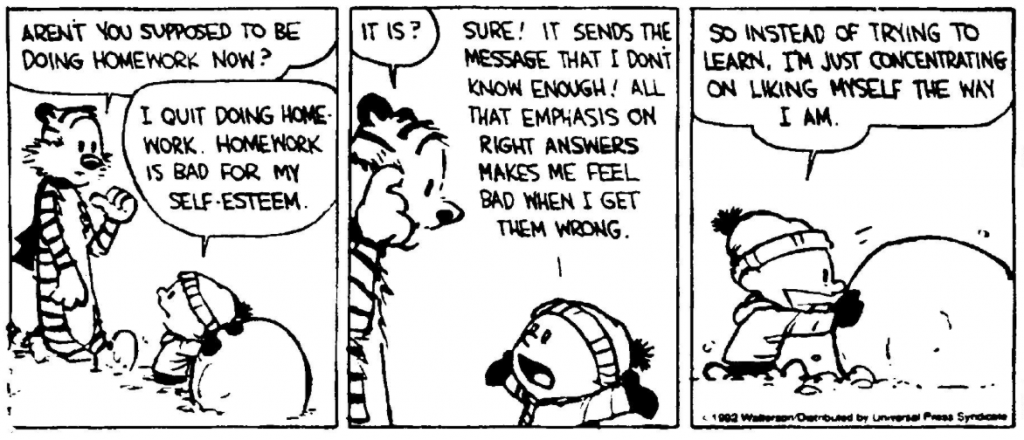Homework is a topic worthy of discussion for families, schools, even researchers. Families often struggle to complete the work assigned by school amidst their family practices and commitments, and may as a result feel guilty about not supporting the school. Some families feel unable to support their children with schoolwork (particularly as it increases in complexity with each academic year), leaving them feeling less than adequate on the landscape of school. Children often feel less than successful, particularly as family members get frustrated, questioning, “Didn’t you learn this at school?” Schools and Ministries do their absolute best to support families with regard to traditional homework completion: they host curriculum evenings designed to demystify the curriculum, they post lists of to-dos (e.g., how to set up a routine, how to support, how to change your language), and they try to be as explicit as possible about the homework. And all of this occurs within a culture of research that suggests that while homework is an educational staple, it’s unclear as to what types of homework make a long-term difference (see Homework: New Research Suggests or Finding the Right Balance).
A Note to School
Note 1: My child works really hard at school and at home. I ensure that he does his homework, but today he said, “I hate homework! I don’t get it! I don’t understand why I have to do it every night.” I tried to explain my perspective on homework, that we have to try, try, try again, but he’s scared to do stuff for fear of getting it wrong, and it, therefore, takes a long time. I’m hoping that you can talk to him about homework, maybe explain to him why it’s necessary and/or useful.
Note 2: Thank you for openly discussing homework in the classroom and reconceptualizing it as practice… I think he got it. I think talking about why practice is really important, now and in the future. They don’t always listen to us as parents. The discussion validated his feelings and gave him a new perspective. Hearing from you and his peers, that you often felt the same way, was a really big thing!
Thank you for following up,
An open parent
No matter what, no matter when, no matter how… we need to work at understanding the homework conundrum, working toward the concept of family-school practice that helps families to make meaningful contributions to their children’s long-term success and well-being.
- How do we re-envision homework as inspired family-school practice? Can we explain why this is necessary?
- How do we use family practice as a site of family-school engagement?
- What types of supports do families and schools need to make this shift?
Traditional homework is often an area of conflict for both families and schools – when it is assigned, when it is completed, and when it is assessed. Some students, teaches, and families view it as make work; some view it as a necessary evil; and yet others view it as essential for long-term success and well-being. How it is viewed depends not only on the child, but on the families’ experience of homework. What is sent home is dependent on the teacher’s philosophy and often the grade level. In some cases, there is an expectation of parent supervision or involvement (e.g., reading with children) whereas in others, the expectation is that the child/youth complete the work independently. Tasks that require learning and/or additional teaching at home may position families for unnecessary frustration and disengagement from the family-school partnership.
Family-school practice, if we accept this as a meaningful and healthy substitution for the concept of homework, seeks to to support families and schools as they work together in different ways: younger ones may practice in fun and dynamic ways; as students get older, the purpose of family-school practice and/or traditional homework becomes more about the growth of a mindset and pattern of practice, habit, organization, independence, and study skills that will serve them today and for the rest of their lives.
So where do we start, recognizing that many families want traditional homework, despite school’s best efforts to revision the type of family practice they encourage.
 Examine your own philosophies and assumptions about the homework that gets sent home. Teachers can ask: Does the child/youth already know this? Am I sending it home for reinforcement, support, and a little practice? What am I saying about the contributions of family by asking for this type of work to be done? Have I checked in with families to determine areas where they feel confident or areas where they struggle? Families can ask: Does my child/youth already know this? How can I support him/her? Do I have the vocabulary and concept required to support them? What is the school really asking me to do with my child/youth? Is this an opportunity to make the connection between child/youth, family, and school?
Examine your own philosophies and assumptions about the homework that gets sent home. Teachers can ask: Does the child/youth already know this? Am I sending it home for reinforcement, support, and a little practice? What am I saying about the contributions of family by asking for this type of work to be done? Have I checked in with families to determine areas where they feel confident or areas where they struggle? Families can ask: Does my child/youth already know this? How can I support him/her? Do I have the vocabulary and concept required to support them? What is the school really asking me to do with my child/youth? Is this an opportunity to make the connection between child/youth, family, and school?
Examine the purpose and benefits of family-school practice. Family-school practice should be an opportunity to make real world connections, to revisit concepts learned in the classroom, to connect family and school in meaningful ways, and to explore questions and issues that have no right or wrong answer, but instead multiple perspectives. It should not be used as consequence or punishment. Chances are if they didn’t get it at school, a few more questions at home isn’t going to help. In guided reading, books are sent home for practice when the kids can successfully read them with 90 to 95% accuracy. Why not apply the same rule of thumb to all homework so that we set students and families up for success?
 Recognize that homework is one component of inspired family-school practice. Children and youth need opportunities out of school to support their social, emotional, physical, even academic development. Families and children negotiate to find practices that suit their strengths, needs, and interests. Some want additional math tutoring because they’re good at math and they want to keep it that way. Others want to learn voice, even though the parents are not absolutely convinced. And many want the social and cooperative benefits of a team sport despite the fact that they don’t have a competitive bone in their body? Some just want to be in the great outdoors, climbing trees and building tree forts. While not assigned homework, they are all inspired family practice that have a direct impact on long-term success and well-being.
Recognize that homework is one component of inspired family-school practice. Children and youth need opportunities out of school to support their social, emotional, physical, even academic development. Families and children negotiate to find practices that suit their strengths, needs, and interests. Some want additional math tutoring because they’re good at math and they want to keep it that way. Others want to learn voice, even though the parents are not absolutely convinced. And many want the social and cooperative benefits of a team sport despite the fact that they don’t have a competitive bone in their body? Some just want to be in the great outdoors, climbing trees and building tree forts. While not assigned homework, they are all inspired family practice that have a direct impact on long-term success and well-being.
Recognize that inspired family-school practice involves getting children and youth to move beyond the typical, “What did you learn at school today? Nothing,” conversation. Distribute a fridge magnet or bookmark with day-to-day conversation starters such as those listed below or in Huffington Post’s 25 Ways to Ask Your Kids, “So How Was School Today?” Send students home with an object or reminder of something to talk about at home. Discuss how these types of conversations build oral language skills, problem-solving, memory, and self-confidence.
How do you get them to share all that’s in their minds? |
Try these:
|
 Try alternative approaches that put the child in control of homework and family-school practice. Check out the Monstar Approach used by Amanda whose class now loves homework. Experiment with weeklong family-school practice that activates an ongoing process of clarification, question-asking, and practice in an effort to set everyone up for success in a meaningful way. This gradual release of responsibility model goes a long way to recognizing and valuing the apprehension of many families. It also points, for teachers, areas that might need to be clarified with the whole class, or just a few. And of course, teachers… keep the homework pile manageable! On a light note, the child in the cartoon gets an A for empathy if not for homework completion.
Try alternative approaches that put the child in control of homework and family-school practice. Check out the Monstar Approach used by Amanda whose class now loves homework. Experiment with weeklong family-school practice that activates an ongoing process of clarification, question-asking, and practice in an effort to set everyone up for success in a meaningful way. This gradual release of responsibility model goes a long way to recognizing and valuing the apprehension of many families. It also points, for teachers, areas that might need to be clarified with the whole class, or just a few. And of course, teachers… keep the homework pile manageable! On a light note, the child in the cartoon gets an A for empathy if not for homework completion.
Recognize that many families are intimidated by the concept of homework. Each time, they sit down with their child (even youth), particularly if they are reluctant, the floodgates of memory open wide and they remember their own frustration, struggle, and at times failure to understand what is being asked and how to follow through. These families and teachers need to work together to share these stories and find ways to work through the barriers… Families can learn that it’s about supporting home practice, saying, “Good job,” setting up routines, asking questions, and not transferring frustration to the child. Teachers need to be cognizant of these stories and perhaps set up a forum whereby both students and teachers can ask questions about the homework before it gets turned in.
Recognize that different families want different types of homework and family practice. For many, the shift to family-school practice will not be an easy one. Some want the day-to-day home work (e.g., math facts work sheets, weekly spelling lists, projects) whereas others want access to resources that support them in different situations (e.g., when their child is disengaged, feeling bullied, in crisis or how to talk about resources). You can refer them to age, grade, theme, subject specific websites; you can send them the curriculum expectations in advance so that they can explore connections on their own; or you can refer them to the Ministry’s websites for parents (e.g., Site for Parents; Homework Help for Grades 9 to 12 students; Homework Help for Grades 7 to 10; Tips and Tools for Parents – in multiple languages!). Families might be interested in consulting with Samantha Kemp-Jackson (a Canadian parenting expert) who offers Tips on Inspiring Kids to Do Homework and discussions of How much homework is too much?
 Finally, explore students’, families’, even teachers’ views, perceptions, assumptions, and myths surrounding homework. Engage in the creation of a list of why you don’t like or didn’t like homework. Have students review the lists and prepare an info graphic about homework. Send it home with an explanation of how you’re going to try to shift the emphasis to family-school practice and alleviate some of the stresses and pressures felt by children/youth, families, and teachers as they engage in traditional homework.
Finally, explore students’, families’, even teachers’ views, perceptions, assumptions, and myths surrounding homework. Engage in the creation of a list of why you don’t like or didn’t like homework. Have students review the lists and prepare an info graphic about homework. Send it home with an explanation of how you’re going to try to shift the emphasis to family-school practice and alleviate some of the stresses and pressures felt by children/youth, families, and teachers as they engage in traditional homework.
Most of all, make it fun! Make it meaningful! and… Be inspired!
Your turn, do you love homework, hate it, or are you indifferent? Do you see envision it as homework or inspired family practice?



